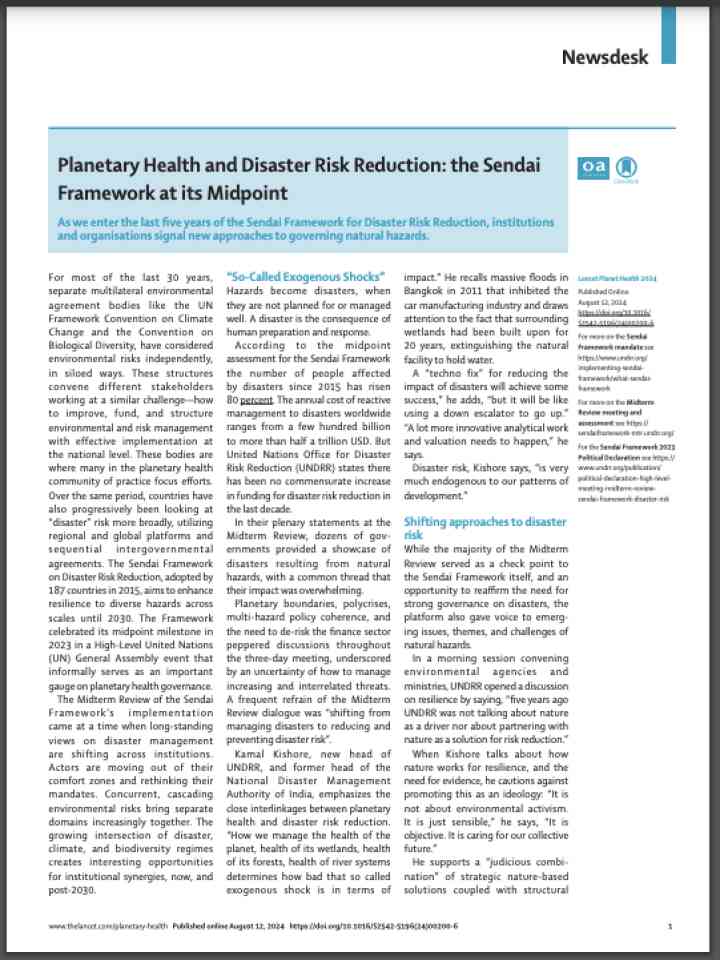Planetary health and disaster risk reduction: The Sendai Framework at its Midpoint
The article discusses the evolving governance approaches for disaster risk reduction as the Sendai Framework enters its final five years, emphasizing the need for integrated, multi-hazard strategies that connect disaster, climate, and biodiversity management. Historically, environmental risks were addressed separately by various global frameworks, but increasing interconnected threats require synergistic approaches across sectors.
The article concludes that there is a growing shift from reactive disaster management to proactive risk reduction, emphasizing integrated approaches that connect disaster, climate, and biodiversity governance. The Sendai Framework's Midterm Review highlighted the need for cross-sectoral collaboration, nature-based solutions, and innovative governance to address compounding risks. While progress is being made, challenges remain, such as the need for increased funding, better synergy between different frameworks, and a focus on both fast and slow variables to manage planetary health and disaster risks post-2030. The importance of prevention, resilience, and holistic planning was strongly emphasized.
Explore further
